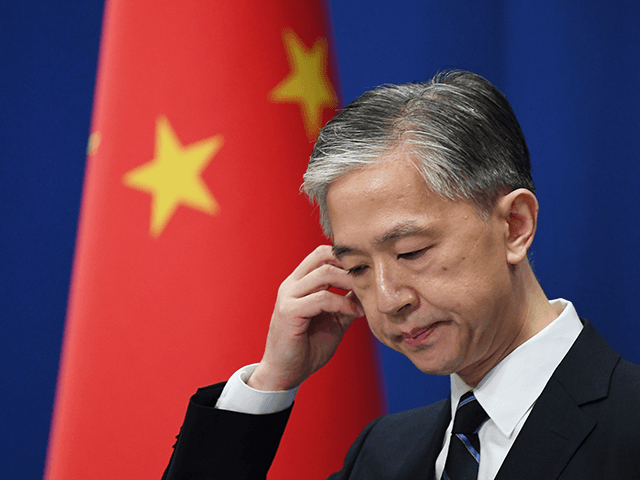A spokesman for the Chinese Foreign Ministry on Thursday refused to answer if China would consider releasing patent protection from its coronavirus vaccines so they could be manufactured worldwide, as the U.S. government has proposed.
Asked for comment on the U.S. proposal, Chinese Foreign Ministry Spokesman Wang Wenbin replied with a political boilerplate that said nothing about Beijing’s position on patent waivers:
All countries share the responsibility to fight the epidemic, and everyone should have equal access to vaccines. China supports efforts devoted to the issue of vaccine accessibility and looks forward to active and constructive discussions among all parties within the framework of the WTO [World Trade Organization] in a bid to achieve an effective and balanced result.
Upholding the vision of building a global community of health for all, China actively supports and participates in international vaccine cooperation, and is providing vaccines in different ways to countries in urgent need, especially developing countries. China will unswervingly continue its efforts in making Covid [Chinese coronavirus] vaccines a public good, and make contributions to improving vaccine accessibility and affordability in developing countries.
“This is a global health crisis, and the extraordinary circumstances of the Covid-19 pandemic call for extraordinary measures. The Administration believes strongly in intellectual property protections, but in service of ending this pandemic, supports the waiver of those protections for Covid-19 [Chinese coronavirus] vaccines,” U.S. Trade Representative Katherine Tai said on Wednesday. President Joe Biden endorsed the idea at a press conference on the same day.
World Health Organization Director-General Tedros Adhanom Ghebreyesus applauded the announcement, hailing it as a “monumental moment in the fight against Covid-19” and a “powerful example of American leadership to address global health challenges.”
The German government, however, sharply disagreed with the idea of waiving patent protection on Thursday. Germany’s BioNTech corporation co-designed one of the most widely used vaccines with Pfizer.
Germany warned that waiving patent protection could harm vaccine development and production without any tangible benefit in the current crisis, because “the limiting factors in the production of vaccines are the production capacities and the high quality standards and not patents.”
Critics of the waiver proposal argued that it would be mostly symbolic because top pharmaceutical companies are already sharing much of their technology, and few other entities have the production capabilities to manufacture top-grade vaccines even if all of the relevant intellectual property was given away.
Critics added that safety concerns would certainly accompany hastily-produced vaccines from a myriad of sources attempting to duplicate these advanced pharmaceutical products, which required billions of dollars and state-of-the-art technology to create. The result could be future reluctance to invest vast resources in developing vaccines that could be expropriated by the government at any moment, in exchange for very little practical increase in the availability of Chinese coronavirus vaccines today.
The Chinese government is unlikely to give away the political advantage it seeks from “vaccine diplomacy,” and the secretive Communist regime probably would not be comfortable with international medical experts getting a close look at the source data for its vaccine research, especially as some of its vaccine clients are experiencing coronavirus surges that call the efficacy of Chinese vaccines into question.
On the other hand, China constantly hectors the United States for supposedly hoarding its vaccines and leaving less-developed nations to suffer from the coronavirus, a political attack pushed with particular vigor after President Biden blocked the export of U.S.-made supplies to India in March. This rhetoric would become more difficult for China to sustain if the U.S. waives patent protection on vaccines while China does not.

COMMENTS
Please let us know if you're having issues with commenting.